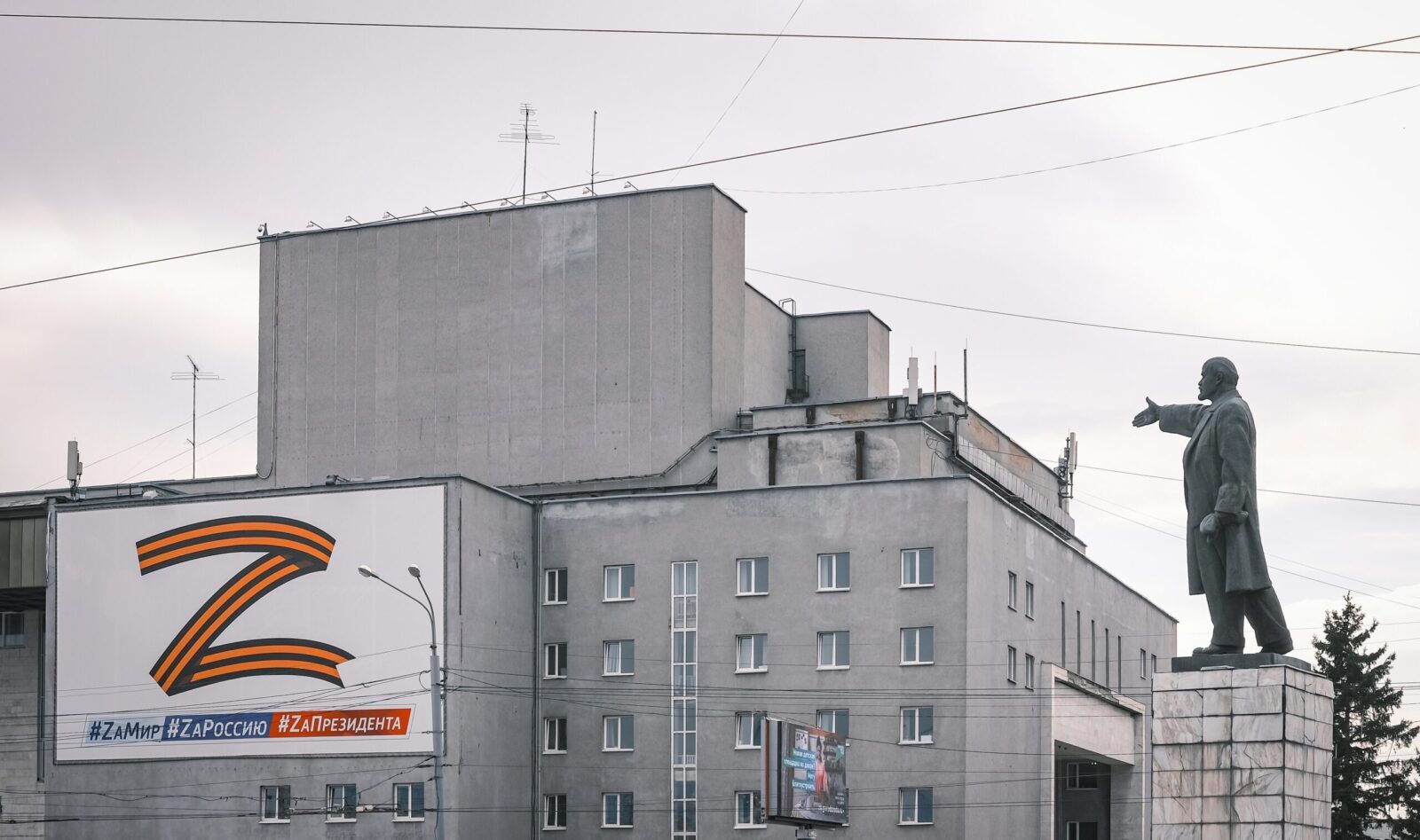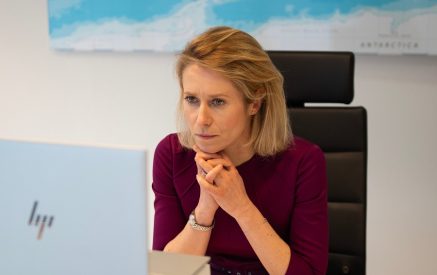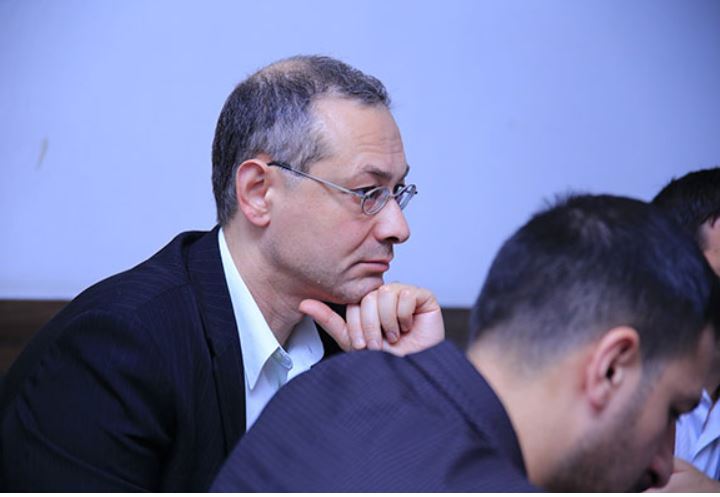by Armen Grigoryan
The Kremlin has been eager to draw parallels between its ongoing invasion of Ukraine and the Second World War. Stressing the idea that it is fighting Nazism much like in its “glorious” past, the country’s controversial ideology has been in development ever since Putin came to power.
Read also
On April 16th, Russian President Vladimir Putin signed a law imposing fines of up to 15 days in jail for equating the USSR and Nazi Germany’s goals and actions during the Second World War. This law also covers denial of the USSR’s “humanitarian mission during the liberation of European countries”. This is the logical extension of a law adopted in July, which prohibited these aforementioned actions but did not mention punitive measures. Before this, in 2014, public statements containing “false information” about the USSR’s wartime actions or Soviet veterans were criminalised. An amendment to the country’s criminal code imposed large fines or up to five years imprisonment.
Such legal amendments are yet another phase in the ongoing consecration of Soviet victory in the “Great Patriotic War”. The victory is now the principal element in Russia’s memory politics, with corresponding ideology used to legitimise militarism and great power ambitions. These recent developments are not just another step towards the country’s revival of Soviet propaganda narratives. They are also intertwined with the Russian aggression in Ukraine and some of the most tragic events of the ongoing war. These changes once again demonstrate what can happen when governments attempt to deny historical crimes through the use of ideology.
At the same time, this is not very surprising. This became especially clear to me after receiving a Visegrad Scholarship to study some of the roots of current Russian policy at the Central European University and Open Society Archives (OSA) in Budapest.
The OSA collection comprises communist propaganda materials from the Stalin era to the 1980s, the findings of Ray J. Madden’s US Congress committee on the Katyń massacre, Polish samizdat and émigré press, a number of western publications, Soviet publications from the late 1980s, and other materials. Overall, it offers a good illustration of the shift in Soviet policy throughout the 20th century. Moscow originally denied responsibility for the Molotov-Ribbentrop Pact and its consequences, such as the partition of Poland, the annexation of Estonia, Latvia and Lithuania, and the Katyń massacre. The state would only formally admit its guilt in the Gorbachev era.
A new national myth
However, a revival of some Soviet narratives began a few years later under the pretext of fighting against the “falsification of history”. In May 2009, Moscow established the Presidential Commission of the Russian Federation to Counter Attempts to Falsify History to the Detriment of Russia’s Interests. The then head of the president’s staff, Sergei Naryshkin, was appointed chairman of the commission. Since 2016, Naryshkin has been the director of the Foreign Intelligence Service. He recently made international headlines following an infamous session of Russia’s Security Council on February 21st. During this meeting, he proposed the recognition of the so-called “Donetsk and Luhansk People’s Republics” and was ridiculed by Putin.
Soon after the commission’s creation, historian Boris Sokolov predicted rather accurately that its activities would result in efforts to suppress information about the Soviet occupation and annexation of the Baltic states, as well as other crimes committed by the Soviet regime. He also highlighted the existence of an official Soviet foreign ministry memorandum published in 1948. This document was released in response to the publication of the Molotov-Ribbentrop Pact’s secret protocols in the US and was titled “Falsifiers of History”. The memorandum, which would provide the basis for Soviet propaganda over the next few decades, denied the existence of the secret protocols and stated that Moscow’s pre-war attempts to form a collective security framework had been undermined by Great Britain and France. As a result, the USSR was compelled to accept the pact in order to win more time to better prepare for an unavoidable war with Germany.
It has also been noted that a gradual return to a Stalinist interpretation of history began, at least in education, right at the start of Putin’s rule. History textbooks published in Russia in the 1990s admitted that the USSR’s territorial gains in 1939-40 happened against the will of the peoples of the Baltic states and Eastern Poland (most of the authors avoided the term “annexation”, likely because it would imply similarities between Stalin and Hitler’s interests and methods). By 2003, however, any mention of the secret protocols was removed from new textbooks. Since 2007, the Molotov-Ribbentrop Pact has been explained in favourable terms, while Stalin has become revered as an “effective manager”.
Soon after the formation of the “falsification of history” commission, the head of the Russian Defence Ministry’s Institute of Military History, Sergei Kovalev, published an article on the ministry’s website. This asserted that Poland had been responsible for beginning the Second World War, as it had declined “justified” German demands. Meanwhile, the USSR needed a non-aggression pact with Germany and had deployed troops in the Baltic states in order to improve border security. The article was deleted from the website the next day and it was explained that it just represented Kovalev’s personal opinion. However, arguments in favour of the Molotov-Ribbentrop Pact and assertions about Poland’s responsibility for the beginning of the war would be repeated later – at a much higher level.
One significant example of the outcomes produced by the commission is a book published in 2011 by State Duma member Vladimir Medinsky, who would later continue developing the state’s new ideology as minister of culture. In The War: The Myths of the USSR, 1939-1945, Medinsky justified the Molotov-Ribbentrop Pact using familiar Soviet arguments. He denied that the USSR was responsible for the Katyń massacre, and so forth. Medinsky implied that the European Union was to blame for statements that Stalin had been responsible for the beginning of war, along with Hitler. A rather characteristic favourable review of Medinsky’s book stated that “Almost everything that liberal journalists write about nowadays was invented long ago by Dr. Goebbels.”
Perhaps most significantly, the change of rhetoric could be observed in Putin’s statements. While during a visit to Poland in 2009 he had denounced the Molotov-Ribbentrop Pact as “collusion to solve one’s problems at others’ expense”, in 2015 he defended it at a joint press conference with German Chancellor Angela Merkel, all the while blaming western nations. This falls in line with the old Soviet argument about Great Britain and France’s unwillingness to support a collective security framework. Later on, Putin increasingly appeared obsessed with keeping the Soviet version of history intact. At a Commonwealth of Independent States summit in December 2019, he lectured his counterparts on the causes and events of the Second World War. He made numerous allusions to Soviet propaganda, including speculation on the “Munich Betrayal” in an attempt to exonerate the USSR and put the blame on Great Britain, France and Poland. The extent of Putin’s argument led to a reply from Warsaw’s foreign ministry, which highlighted the Soviet Union’s invasion, occupation, deportations and mass killings. This document also proposed relaunching the Polish-Russian Group for Difficult Issues that had operated in the 1990s. Another statement on the issue was later made by Prime Minister Mateusz Morawiecki.
In June 2020, Putin expanded on his historical argument in a lengthy article in The National Interest. Among other issues, the piece implied that the Molotov-Ribbentrop Pact and the USSR’s actions had been justified, as the “Munich Betrayal” had meant that the West would deal with security issues without taking Soviet interests into account. He also claimed that the USSR entered the war only when it had been attacked by Germany and praised the Red Army’s “liberation mission in Europe”. The Russian leader also defended the post-war division of Europe by referring, even though indirectly, to the Yalta Conference agreements. Most absurdly, the Russian embassy in Berlin sent a translation of the revisionist article to a number of German professors, asking them to make use of the work in their lectures.
History and the present
Quite noticeably, there are some parallels between Putin’s arguments regarding post-war spheres of influence, on one side, and renewed demands for a new sphere of influence, on the other. This is exemplified by his speech at the Munich Security Conference in 2007, continuous attempts to subjugate various post-Soviet states, his recent demand that NATO withdraw from Central and Eastern Europe, and, ultimately, the war waged on Ukraine.
The denial of Soviet crimes has also been used by Russian propaganda as a basis for denying those military crimes and crimes against humanity committed by the Russian army in Ukraine. For example, participants in a pro-Russian demonstration in Budapest on April 30th carried a poster implying that the USSR should not be blamed for Katyń, or today’s massacres in Bucha and other Ukrainian towns.
Finally, it is also important to mention another significant feature of Russia’s contemporary ideology. This is the mainstreaming of ideas that were once considered extreme or marginal. Recently, when nationalist politician Vladimir Zhirinovsky died, several pundits noted that some of his extreme ideas expressed in the 1990s have been implemented under Putin. However, while the media made Zhirinovsky a big star, he was not the only one whose controversial ideas became a feature of this new state ideology.
One may remember Yury Mukhin, the author of various profanity-laden articles in the extreme nationalist newspaper Zavtra. He has also written books such as The Katyń Detective, in which he denied Soviet crimes and blamed Poland for triggering the war. In 2016, a high-ranking employee of the Russian General Staff even ascribed a false quote based on the “Dulles’ Plan” conspiracy theory to former US presidential candidate Mitt Romney. Other references to “Dulles’ Plan” have been made by Russian politicians.
In the context of the ongoing war, just one last propaganda narrative should be mentioned. This is the belief that the EU is the heir to the German-led coalition of states that fought against the USSR. Such an idea was first brought up in a radical communist newspaper and later popularised by means of social networks. When Moscow announced in April that “the second stage of the special military operation” in Ukraine was about to begin, one military commander boasted that Russia was fighting against all of Europe and the world “as in the Great Patriotic War”. Even the governor of Saint Petersburg, Alexander Beglov, repeated the idea that Russia is fighting “the same Nazis as in 1941-45”. Tying his government’s actions to a “glorious” Soviet past, the politician claimed that “thirteen European states, which blockaded Leningrad [during the Great Patriotic War], are now trying, together with the USA, to blockade entire Russia.”
Armen Grigoryan is co-founder and vice president of the Yerevan-based Centre for Policy Studies. He is also a member of the advisory board of the project Resilience in the South Caucasus: Prospects and Challenges of a New EU Foreign Policy Concept, implemented by the Institute of Slavic Languages and Caucasus Studies, University of Jena.





























































